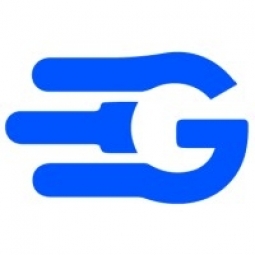Download PDF
Tyre Manufacturer Overcomes Suez Canal Blockade with IoT Solution
Technology Category
- Analytics & Modeling - Predictive Analytics
- Analytics & Modeling - Real Time Analytics
Applicable Industries
- Automotive
- Retail
Applicable Functions
- Facility Management
Use Cases
- Real-Time Location System (RTLS)
- Supply Chain Visibility
The Challenge
A leading tyre manufacturing company based in Mumbai, India, with production facilities across the globe, faced a significant challenge due to the Suez Canal blockade in March 2021. The blockade, caused by a skyscraper-sized container ship named Evergreen, left about 200 ships stranded at either end of the canal, severely impacting global trade. The financial implications were massive, with the blockade amounting to a loss of nearly £7 billion of goods a day, or approximately £290 million an hour. The tyre manufacturer's westbound and eastbound shipments were halted, impacting cargo worth $18.5 million. This resulted in delays in the delivery of finished goods, affecting eight customers across Europe and the US. Furthermore, the supply of raw materials to production facilities in India was severely disrupted, causing significant interruptions in the production cycle.
About The Customer
The customer is a Mumbai-based global leader in tyre manufacturing, with production facilities spread across Israel, China, Europe, India, South Africa, the USA, and Mexico. The company specializes in application-specific tyres for the automotive industry and multi-purpose tyres for other sectors. The brand was significantly impacted by the Suez Canal blockade in March 2021, which halted both its westbound and eastbound shipments, affecting cargo worth $18.5 million. The blockade also caused delays in the delivery of finished goods to eight customers across Europe and the US and disrupted the supply of raw materials to its production facilities in India.
The Solution
In response to this crisis, the company sought a tool that would provide visibility into their shipments' locations, the duration they would remain stranded, and rich analytics to forecast future scenarios. GoComet's GoTrack Automated Shipment Tracking system was the chosen solution. GoTrack provided real-time visibility, offering accurate insights on vessels rerouting via South Africa and those waiting for the canal to reopen. The system also provided predictive and descriptive data, forecasting delays and updating ETAs based on on-ground developments and advanced data analytics. Additionally, GoTrack generated automated daily reports on the status of the ships carrying the company's cargo. This solution allowed the company to make data-driven decisions to navigate the crisis, reallocate resources, better manage production cycles, and enhance customer experience by sharing live tracking updates.
Operational Impact
Quantitative Benefit
Related Case Studies.

Case Study
Integral Plant Maintenance
Mercedes-Benz and his partner GAZ chose Siemens to be its maintenance partner at a new engine plant in Yaroslavl, Russia. The new plant offers a capacity to manufacture diesel engines for the Russian market, for locally produced Sprinter Classic. In addition to engines for the local market, the Yaroslavl plant will also produce spare parts. Mercedes-Benz Russia and his partner needed a service partner in order to ensure the operation of these lines in a maintenance partnership arrangement. The challenges included coordinating the entire maintenance management operation, in particular inspections, corrective and predictive maintenance activities, and the optimizing spare parts management. Siemens developed a customized maintenance solution that includes all electronic and mechanical maintenance activities (Integral Plant Maintenance).

Case Study
Improving Production Line Efficiency with Ethernet Micro RTU Controller
Moxa was asked to provide a connectivity solution for one of the world's leading cosmetics companies. This multinational corporation, with retail presence in 130 countries, 23 global braches, and over 66,000 employees, sought to improve the efficiency of their production process by migrating from manual monitoring to an automatic productivity monitoring system. The production line was being monitored by ABB Real-TPI, a factory information system that offers data collection and analysis to improve plant efficiency. Due to software limitations, the customer needed an OPC server and a corresponding I/O solution to collect data from additional sensor devices for the Real-TPI system. The goal is to enable the factory information system to more thoroughly collect data from every corner of the production line. This will improve its ability to measure Overall Equipment Effectiveness (OEE) and translate into increased production efficiencies. System Requirements • Instant status updates while still consuming minimal bandwidth to relieve strain on limited factory networks • Interoperable with ABB Real-TPI • Small form factor appropriate for deployment where space is scarce • Remote software management and configuration to simplify operations









